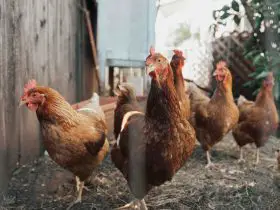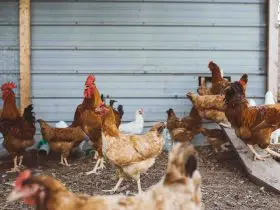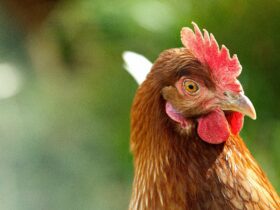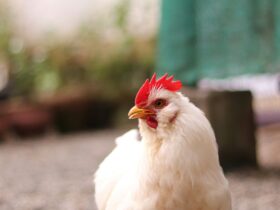When you embark on the journey of raising chickens, one of the first and most crucial decisions you’ll face is selecting the right breed. With hundreds of chicken breeds available, each with its unique characteristics, choosing the perfect fit can be overwhelming. Fear not! In this guide, we’ll break down everything you need to know about selecting the ideal chicken breed for your needs.
Question: What type of chicken should I get?


Raising chickens can be a rewarding experience, whether you’re looking to enjoy fresh eggs, and tender meat, or simply have feathered friends in your backyard. However, the success of your poultry venture heavily depends on choosing the right breed. The breed you select will determine not only the quantity and quality of eggs or meat but also the temperament, space requirements, and overall maintenance of your flock.
Factors to Consider
Before diving into the specifics of chicken breeds, it’s essential to consider several factors that will influence your decision. These factors include your purpose for raising chickens, available space, climate, and personal preferences. By carefully assessing these factors, you can narrow down your options and make an informed choice.
- Purpose
- Space Availability
- Climate
- Personal Preferences
Egg-laying Ability
For many backyard chicken enthusiasts, a primary motivation for raising chickens is the promise of fresh eggs. Different chicken breeds exhibit varying levels of egg-laying prowess, ranging from prolific layers to more modest producers. If a steady supply of eggs is your goal, consider breeds renowned for their egg-laying abilities.
- Prolific Layers
- Moderate Layers
- Rare or Unusual Layers
Meat Production
If you’re raising chickens primarily for meat consumption, selecting a breed optimized for meat production is paramount. These breeds typically grow quickly and yield plump, flavorful meat, making them ideal for the dinner table.
- Broilers
- Dual-Purpose Breeds
- Heritage Breeds
Climate Compatibility
Chickens are adaptable creatures, but certain breeds thrive better in specific climates. When choosing a chicken breed, consider your local climate and select breeds that can withstand temperature fluctuations and weather extremes.
- Cold-Hardy Breeds
- Heat-Tolerant Breeds
Temperament
The temperament of your chickens can significantly impact your overall experience as a poultry keeper. Some breeds are docile and friendly, making them ideal for families with children, while others are more independent or flighty.
Space Requirements
The amount of space you have available will influence the size and number of chickens you can comfortably keep. Larger breeds may require more room to roam, while bantam breeds are well-suited for smaller yards or urban environments.
Disease Resistance
Disease resistance is a crucial consideration for maintaining a healthy flock. While no breed is entirely immune to illness, some breeds exhibit greater resilience to common poultry diseases.
Disease-Resistant Breeds
Lifespan
The lifespan of chickens varies depending on factors such as breed, diet, and environment. Understanding the typical lifespan of different breeds can help you plan for the long-term care of your flock.
- Long-Lived Breeds
- Short-Lived Breeds


Appearance
While not the most critical factor, the appearance of your chickens can add charm and personality to your flock. Whether you prefer sleek and modern or fluffy and ornamental, there’s a breed to suit every aesthetic taste.
Dual-Purpose Breeds
For those seeking a versatile option that offers both eggs and meat, dual-purpose breeds are an excellent choice. These breeds strike a balance between egg-laying ability and meat production, making them valuable additions to any backyard flock.
Specialty Breeds
In addition to traditional egg and meat breeds, there are numerous specialty breeds prized for their unique characteristics. Whether you’re interested in ornamental breeds for exhibition or rare heritage breeds for preservation, there’s a specialty breed to capture your interest.
Accessibility
While exotic breeds may be tempting, availability can be a significant hurdle for prospective chicken keepers. Consider choosing breeds that are readily available from local hatcheries or breeders to avoid lengthy wait times or expensive shipping fees.
Budget Considerations
Raising chickens can be a cost-effective endeavor, but certain breeds may require more substantial investments upfront. Factor in costs such as purchasing chicks or hatching eggs, coop construction, feed, and ongoing maintenance when budgeting for your flock.

Conclusion on What type of chicken should I get?
In conclusion, selecting the right chicken breed is a decision that should not be taken lightly. By considering factors such as egg-laying ability, meat production, temperament, and climate compatibility, you can choose a breed that suits your needs and preferences. Whether you’re a novice chicken keeper or a seasoned poultry enthusiast, finding the perfect breed can set the stage for a fulfilling and rewarding experience.












Hello!! Welcome to Anim Farm